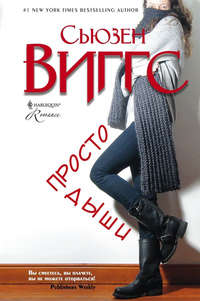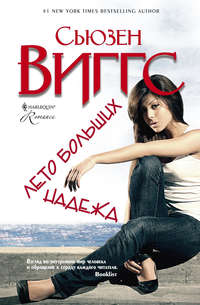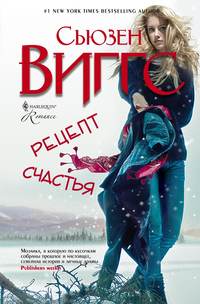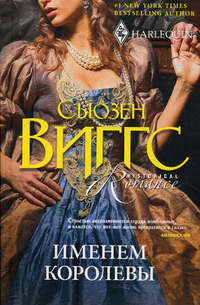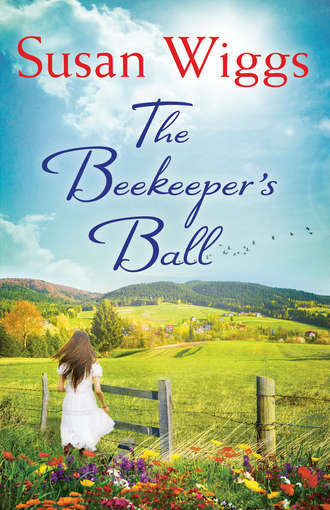
Полная версия
The Beekeeper's Ball
“So he took these pictures?” Mac opened a file folder to four fading snapshots, turning them so Magnus and the two sisters could see.
Magnus nodded. “Yes, I brought one large case along when I came to America after the war, and those photographs were tucked into the lining.”
“Talk about life in Copenhagen at the start of the occupoation. What was it like, having another family living with you?”
“At first, life still seemed...normal. Routine. From my perspective as an only child, it was good fun having a playmate. Yes, it was routine, until Sweet and Eva disappeared into the night.”
“Were they warned that there was going to be a roundup of the Jews?” asked Mac.
“You’ve done some reading, then,” said Magnus. “But in fact, some years later, in the autumn of 1943. No, the reason Eva and her father had to leave was that the Germans found out my father’s greatest secret.”
Secrets seemed to run in this family, Mac thought, looking from one sister to the other, two beautiful but very different women who hadn’t known each other while growing up.
“What precipitated their leaving, then?” Mac asked Magnus.
“An agent affiliated with the Danish underground was caught and tortured. We had to assume the operation was compromised. Eva and her father had to leave in secret well in advance of the official action. They were sent up to a small coastal town called Helsingør—you would know it as Elsinore, from the Shakespeare play. Shortly after that, the soldiers came to search the house, but by that time, there was nothing to find. The Nazis were furious that the tip-off failed to yield any results, and they took my parents in for questioning.”
Now Magnus closed his eyes and held himself very still, so still that Mac thought he might’ve drifted off to sleep. He exchanged a glance with Isabel. She sat unmoving, her fingers braided together, tense.
Then Magnus opened his eyes. “I never saw them again. From that night onward, I was on my own. Which is my long-winded way of explaining what I meant when I said I didn’t make a decision of any sort about my own future. I simply reacted, determined to survive, as any wild animal might do. I lived by my wits—or lack thereof—from day to day. So in that sense, it wasn’t a decision that brought me to America. It was happenstance—and sheer blind luck, although I do not recall feeling at all lucky that day.”
He shook his head, paused to sample the honeyed cheese with some bread. “From today’s perspective, it is easy to look back and deride ourselves for not seeing the storm coming. But you understand, we were simply Danes, living our lives and going about our business. It was quite some time before I even grasped that there was a division between Jews and Gentiles. We were all Danes first. Denmark did not force Jews to register their property, or to identify themselves, and God knows, they were never made to give up their homes and businesses.”
“That came later, didn’t it?” said Tess, regarding him with soft-eyed sympathy. She reached up and took the feather thing out of her hair and set it aside.
“It all came about gradually as the Germans tightened their control. They broke their promises one by one, replacing each edict with another. The Germans even claimed the Jews of Scandinavia would not be included in their Final Solution. But by that time, everyone knew that was a lie.”

“For the bee, honey is the ultimate reality. It represents the fulfillment of her life mission, the triumph over her enemies, the continuity of the hive, the justification for working herself to death. Honey is to bees what money in the bank is to people—a measure of prosperity and well-being. But there is nothing abstract or symbolic about honey, as there is about money, which has no intrinsic value. There is more real wealth in a pound of honey, or a load of manure for that matter, than all the currency in the world. We often destroy the world’s real wealth to create an illusion of wealth, confusing symbol and substance.”
—William Longgood, The Queen Must Die

If possible, get the ingredients at your local farmer’s market. Food tastes better when you know where it comes from.
⅓ cup honey
⅓ cup lemon or lime juice
6 fresh mint leaves, finely snipped
2 cups melon cubes
2 cups green seedless grapes
1 cup fresh blueberries
1 cup fresh pineapple chunks
Use a whisk or hand mixer to whip the honey until it turns thick and opaque. Add the lemon or lime, then stir in the mint leaves. Combine the fruit in a large glass or pottery bowl. Pour the honey mixture over and stir gently to coat. Serve immediately with a clear flute of sparkling water or Prosecco.
[Source: Original]
Chapter Six
Copenhagen, 1940
“Here, let me fix your hair again.” Magnus’s mother licked the palm of her hand and smoothed it over his head. “This cowlick will not be tamed.”
He gritted his teeth, enduring the grooming in order to get the picture taking over with quicker.
“Goodness,” Mama said, “you’re taller than me all of a sudden. When did that happen?”
“He’s going to be taller than all of us,” said Farfar, his grandfather, reaching out to straighten Magnus’s tie. Even though it wasn’t a Sunday, they were all wearing their Sunday best. The starched and creased collar cut into his neck.
Uncle Sweet had set up a big cube-shaped black camera on a tripod, its accordion-fold lens aimed at the apple tree in the backyard, where they were gathering for the family portrait. Sweet wasn’t really Magnus’s uncle, and Sweet’s daughter, Eva, wasn’t really Magnus’s cousin. Yet Magnus had long known him as Uncle Sweet. His real name was Sigur, but everyone called him Sweet. Papa said they’d come up through school together as boyhood friends, the way Magnus was with Kiki Rasmussen, his best mate.
Sweet was a photographer, making his living by taking pictures of people and buildings. He used to have a studio and picture laboratory in Strøget, but he closed up shop soon after the Germans invaded Denmark and overran the city. Papa said this was because Uncle Sweet was Jewish.
“All together, now,” he said, motioning Magnus and his parents and Farfar to their places under the tree. “You, too, Eva. How pretty you look, with those ribbons in your hair.”
Unlike Magnus, Eva seemed to like getting all dressed up. She preened as she stood next to him. Then Uncle Sweet got into the picture, and fired the shutter with a button on a cable attached to the camera. He repeated this several times until he was satisfied.
“Good work, everyone,” he declared, clapping his hands. He had a funny grin and dark hair that stuck out over his ears. Magnus had always thought he looked like a tall, skinny clown. “I’ll go to the basement and process the plates. Eva, hang up your good clothes and finish putting your things away in your new room.”
“Yes, Poppy.” Flipping back her fat, dark pigtails, she followed him into the house.
Papa had explained to Magnus that Uncle Sweet and Eva had been put out of their house, and were coming to live with them. For safety’s sake, they had to pretend they truly were family. The photograph was meant to promote the illusion. It would be displayed on Mama’s pianoforte, along with the other family pictures.
“How long will they stay with us?” Magnus asked his mother.
“For as long as they need to, I would imagine.” Her mouth turned down at the corners. “That poor little girl. I don’t know what her mother can be thinking, abandoning her family.”
Sweet had a beautiful wife named Katya, but Magnus had always thought her a bit strange. She rarely joined in the picnics and parties with Magnus’s family, and she was always complaining that Sweet didn’t make enough money. She loved pretty things and said he never bought her enough of them.
“Does that mean Eva’s mother won’t be coming to live with us?”
Mama looked as if she’d tasted something sour. “No, she will not. She ran off with a German officer.”
“Why do you say she ran off?” he asked his mother. “Last week, Kiki and I saw her through the window of the Crown Prince tea room, and she wasn’t running.”
“It’s just an expression,” Mama said. “It means she no longer chooses to be with her family.” Her mouth turned even harder and more disapproving.
“Because the German officer can give her fancy things so she would rather be with him,” Magnus concluded, repeating a snippet of gossip he’d heard.
“As I said, I don’t know what she must be thinking. Just don’t speak of it in front of Uncle Sweet and Eva. It makes Eva very sad.”
“I would never say anything,” Magnus promised. He tried to imagine what it would be like, seeing his mother with some stranger, and a German at that. The very idea made his skin crawl.
* * *
Uncle Sweet had turned the basement into his workshop and laboratory. Magnus was fascinated by his collection of cameras, big and small, and by the workings of the darkroom. Sometimes Sweet would let him watch as he created a print, the image appearing onto the paper in the chemical bath, like a ghost emerging from another world. Most of the pictures commemorated life’s events—marriages and birthdays, new babies and commencements. Some of his clients had their pictures made with horses or dogs, or surrounded by gardens.
As far as Magnus knew, that was the extent of his work.
He found out Sweet’s secret one day not long before Christmas. The first good freeze had arrived in Golden Prince Park, and Magnus wanted to go skating with his schoolmates. His skates still fit, but the blades were dull. He clumped down to the basement to find the whetstone, bringing a lighted candle with him. They had an electric torch, but thanks to the war, batteries were hard to come by.
He shut the door behind him so his mother wouldn’t complain about the draft. The smell of damp stone mingled with the sharp reek of Uncle Sweet’s chemicals. Magnus set the candle on a shelf and looked around for the stone to sharpen his skate blades.
There were tools stored in a wooden chest under the stairs. He dropped to his knees to begin the search. At the same moment, the basement door swished open and then quickly shut, the movement blowing out Magnus’s candle.
Three shadowy figures came down the stairs, lighting their way with an oil lantern. Magnus froze. He didn’t dare breathe.
“Were you seen?” asked Magnus’s father. Speaking English.
“Doubtful,” said an unfamiliar voice. “And would it matter, when I’m dressed like your dotty old grandmother?”
“Can’t be too careful,” said Sweet, also speaking English. “The Germans are like watchdogs. They never sleep.”
Magnus had been studying English in school since he’d been begun losing his milk teeth, and he understood it perfectly. Each night, they listened to broadcasts in English on Farfar’s shortwave radio. But what was an Englishman doing in the basement?
Magnus should have made his presence known. But it all happened so fast, and he was so startled that he simply froze, riveted to the spot under the stairs.
“If they never sleep,” the stranger said, “then won’t they catch on?”
“Not with the travel permit we’re going to create for you,” said Uncle Sweet. “You’ll be able to go anywhere without being questioned.”
Magnus poked his head up between the risers of the stairs in time to see the stranger take off his head scarf and shawl. He was a dark-haired man, his features in shadow. “How long have you gentlemen been with the Princes?”
Magnus pressed his lips together to stifle a gasp. The Princes were a shadowy organization of intelligence officers from the Danish army. Although nothing could be proven, rumor had it that the Princes regularly channeled reports to London, at great risk to themselves. The idea that his father and Sweet secretly worked for the group gave Magnus a thrill of fear.
“We have no knowledge of this group,” his father murmured. “If we don’t know the answer, then it can’t be tortured out of us.”
Magnus pressed his lips together even harder.
“Please, take a seat on this crate for the portrait.” Uncle Sweet got his camera ready on a tripod and held the flash bar high up in the air.
“Hold still. Neutral face. Don’t smile,” said Magnus’s father.
The flash fired, its glare shining on the man’s face. He needed a shave. He wore a plain broadcloth shirt and dark colored pants. Sweet closed the black curtains around the darkroom and quickly went to work.
The stranger set a long flat wooden box on a pair of sawhorses and lifted out what appeared to be a firearm made of pipes. Magnus clamped his jaw to keep his teeth from chattering.
“Here it is,” the Englishman said. “The STEN gun, as promised. British made, very simple and powerful. It will fire ten rounds per second. I’m told you can take it apart and make a draft of each individual piece.”
Magnus’s father nodded. He picked up a piece of the disassembled gun. “You see how this looks? It could be anything. A part for a clock. A mechanism for a tire pump. Taken bit by bit, a gun is unrecognizable. Even a trained eye would not know this is the trigger of a lethal weapon. On the sketches, each element will be measured and labeled as a sewing machine part.”
“Sewing machine?”
Papa shrugged. “As I explained, piece by piece, the production drawings will look innocent enough.”
“And you have a manufactory in place?”
Another nod. “Assuming the materials have been rounded up, we will have the resources to manufacture thousands of these.”
“Good, then—”
“I would not call it good. But necessary in these times.”
“Yes, of course. We’re all aware of that.”
Sweet drew back the curtain of the darkroom area. “The papers are ready,” he said.
“Your identity papers will designate you an apple farmer,” said Papa.
The man smiled, his eyes crinkling at the corners, and he looked pleasant, but nervous. “Back home in Shropshire, my family has an orchard,” he said.
“Appropriate, then,” said Uncle Sweet.
“You see, I’m not simply a courier of submachine guns, but a farmer,” the Englishman said. He seemed a bit defensive after Papa snapped at him.
“We all do what we must,” Sweet said.
“And you’ve done this before,” the man said. “I don’t mean to seem ungrateful, but—”
“We understand,” said Papa. “I promise, the document will be undetectable, even under scrutiny.”
“How can you make such a promise?”
“I’m a civil servant,” said Magnus’s father. “I have access to all the tools.” He brandished something that looked like an official stamp or seal. “Just use your common sense. It’s a dangerous business we’re in these days.”
“No more dangerous than letting the Nazis take over all of Europe. The Germans are bringing in munitions for storage, knowing the Allies won’t bomb Copenhagen. We can’t allow the Nazis to turn your city into a satellite of their base of operations.”
“Good man,” said Uncle Sweet. He smiled briefly, but there was always a sadness in him. Magnus supposed it was because of everything he’d lost—not just his business and his home, but his wife. Even though she had done a terrible thing, Magnus knew Sweet missed her. Sometimes at night, Uncle Sweet would get into the aquavit from Farfar’s cut crystal bottle, and he would lament that he should have taken better care of his Katya. Mama got short with him, and said Katya should have taken better care of her family.
“All right, then,” said Papa, inspecting the document they had created. “You are officially an undercover agent. Not, of course, that there is anything official about it.”
“Pray we stay that way,” said the stranger.
“It will take more than prayers,” said Papa.
The Englishman stepped into the light, and Magnus noticed that he had a deep scar angling from his jaw down the side of his neck. “Your help is appreciated,” he said quietly. “I know what you’re risking.”
“No more than you are,” Papa said, and Magnus felt a welling of pride in his chest.
“All right, then,” said Sweet. “You can leave by the back door. There’s a work barrow for you to use in tonight’s operation. Good luck.”
The three of them left the basement, their shoes kicking dust through the stairs. Magnus’s nose tickled, and he held his breath, suppressing a desperate sneeze. They seemed to take forever to leave. Just as the door shut, he burst out with the sneeze.
The footsteps outside the door stopped. “Did you hear something?” asked Uncle Sweet.
There was a long pause. “It was nothing,” Papa said.
Chapter Seven
“And that,” Magnus told his rapt listeners, “is how I learned my father and his friend Sigur—my Uncle Sweet—were involved in the resistance effort. It was quite a moment for me, finding out my mild-mannered father had a secret persona. Discovering his secret was like revealing Clark Kent’s hidden identity as Superman. Very exciting. In my mind, my father went from being an ordinary civil engineer to a war hero.”
“Your father claimed he wasn’t risking anything more than the British guy was risking,” said Tess. “That’s not true, though. He put the whole family at risk.”
Magnus’s smile of memory disappeared. “Times were different then. Early in the occupation, life continued to seem normal for a time, so perhaps we didn’t understand the risk. It wasn’t until later that we grasped the danger and seriousness of the underground activities. In all, the Danes manufactured about ten thousand submachine guns, and many of those originated with my father’s production drawings. He drew everything down to the last detail, and then mislabeled the parts in code so they would appear to be anything but weapons. For all the Jerries knew, the drawings were entirely mundane—parts for bicycles or sewing machines. The guns were then assembled in various places throughout the city—bicycle shops, small machine shops, pump repair facilities—under the pretext of being something else altogether.”
Mac scrolled to a website on his laptop. “So these production drawings that were preserved by the Danish Historical Society were made by your father?”
“The ones labeled Bruder Petersen—Petersen Brothers—likely came from him. The Petersen brothers were two boy detectives in a series of novels we used to read as youngsters, so it was actually a nonexistent company.” He studied an enlarged drawing on the screen. “This one is labeled ‘rocker arm for pump relay.’ In actuality, it is a STEN gun trigger. I assume that after my father drew, measured and labeled each individual part, someone else was in charge of the assembly.”
Isabel exhaled a shaky breath, not even realizing she’d been holding it as she’d listened to the story. The tension her grandfather had described while hiding beneath the cellar stairs had been palpable.
On the table lay a few pictures of Magnus as a boy; she’d seen them before. He was tall and good-looking, neatly dressed and solemn, his eyes large and darkly fringed, making him appear almost too pretty for a boy. Yet as often as she’d seen the photographs, she had never quite been able to connect the teenage boy with her grandfather. Now the youngster came to life in her mind, a kid avidly reading a comic book, or looking forward to ice-skating with his friends, or crouched beneath the basement stairs, too frightened to speak up.
“That’s such an extraordinary story. Why have you never told me this before?” she asked him.
He reached across the space between them, patted her hand. “Life is long,” he said. “I have so many moments to remember, large and small, and I haven’t thought about that incident in decades. I suppose, considering what came after my discovery in the basement, it never occurred to me that this would be of interest to you. Or to anyone.”
“Of course it is,” Tess assured him. “Your father and his friend must have been incredible.”
“I’m sure they regarded themselves as ordinary men, simply doing what was right in order to live with themselves. But yes, they were heroes in my eyes.”
“In anyone’s eyes,” said Isabel. “I like to think I’d be that kind of person, the one who would dare to put myself at risk.”
“Let us hope you never have to find out,” said her grandfather. “I was very proud of my father, and I miss him to this day.” Magnus’s eyes looked into something distant and unseeable. “However, sometimes I can’t help imagining how our lives would have unfolded if he had not embraced the cause. You see, many of our friends and neighbors simply kept their heads down and endured the occupation, then returned to normal routine after the war. Of course a big part of me, the part that desperately needed my parents and grandfather, wishes Papa would have chosen that path rather than risking himself. Risking the whole family, when it comes down to it.”
“You’re only human,” said Tess. “Of course you wished that.”
“Did you know what resistance group your father was affiliated with?” asked Mac.
“He wasn’t with the Princes, since he was a civilian, although I believe he did identity work for them. There was a faction of the resistance known as the Holger Danske. It wasn’t terribly well organized, but they got things done—underground activities, rescues, acts of sabotage. I believe that was his main connection.”
Isabel studied the “family” picture taken by Uncle Sweet so long ago, angling it toward the fading light. Grandfather was just a gangly boy on the verge of becoming a man, yet he had a face she recognized. He was standing next to his own grandfather—the beloved Farfar, a distinguished physician and a widower. His mother sat in an old-fashioned tufted armchair, which looked incongruous in the outdoor setting. With a faint smile on her face, she was flanked by his pretend uncle and cousin, a slender girl with her hair in pigtails. She looked directly into the camera, her guileless expression heartbreaking to Isabel, because the girl in the photograph had no idea what would soon happen to her. Finally her gaze went to Magnus’s father, Karl Johansen, who stood with one hand on his wife Ilsa’s shoulder, comb furrows in his hair, his tie perfectly straight.
The idea that the Johansens had sheltered a Jewish man and his daughter made Isabel proud, too. Yet she could relate to her grandfather’s wish. Suppose his father had done nothing to resist the Nazis. The family’s entire future would have unfolded in a different direction.
Mac stood and checked out the photograph over her shoulder. “They were hiding in plain sight,” he said.
Magnus nodded. “At first, I’m certain we—everyone—underestimated the danger. Reports of atrocities were just that—reports. Everyone found out about Kristallnacht when it occurred in 1938, but the world shrugged its shoulders. Most people believed the Night of Broken Glass was a disgusting spectacle, but an isolated event. The extent of the Nazis’ activities was still not fully known. Look at us in that picture. None of us knew what was around the next corner.”
“You look so much like your father,” she said. “I’m sorry you lost him.”
“I lost everything,” Grandfather said, bracing his hands on the chair arms and levering himself up. “I’m tired. I believe I’ll go inside and read my paper.”
Isabel exchanged a glance with Mac, who pocketed his phone and stepped back.
“Are you all right, Grandfather?” asked Isabel, going to his side. “Do you want me to help you?”
He gently touched her cheek. “I am fine,” he said. “Fine. It’s curious, the way reliving the past can be so draining. It will be good to be alone with my memories for a bit, and to get some rest.”
“Are you sure? I can get you a glass of chamomile tea on ice, maybe a honig kik—your favorite cookies—”






